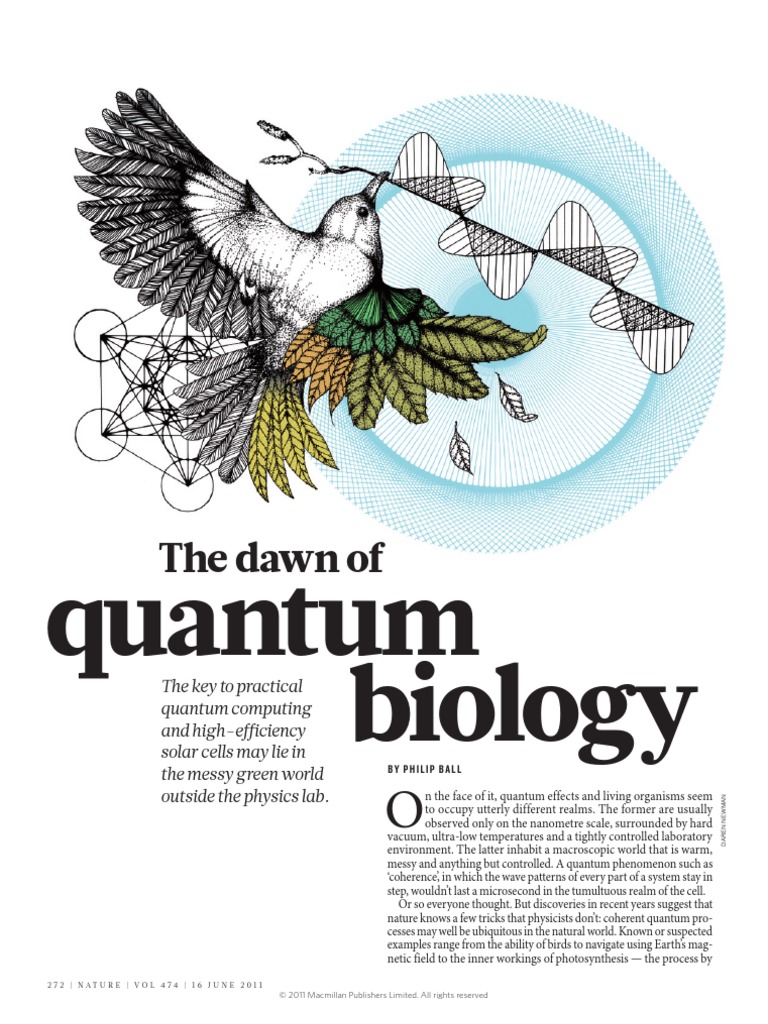In an era defined by wondrous technological advancements and profound scientific inquiries, the question arises: Should one major in biophysics, particularly with a lens focused on quantum mechanics? This inquiry not only prompts introspection but also invites exploration into the fascinating interplay between biology and quantum physics. The melding of these disciplines offers an exciting, albeit challenging, journey into the underpinnings of life itself. Let us delve into this thought-provoking inquiry.
The essence of biophysics lies at the confluence of biology and physics, where the principles governing the physical world elucidate the intricate mechanisms of life. This multidisciplinary approach can lead to a comprehensive understanding of biological processes, ranging from the molecular basis of genetic replication to the behavioral dynamics of organisms. While the core of biophysics is inherently interdisciplinary, the incorporation of quantum mechanics adds a layer of complexity and intrigue that can be both captivating and perplexing.
As one considers a major in biophysics, the quantum dimension invites a playful question: can the principles of quantum mechanics illuminate the enigmas of biological systems? It is not unusual to encounter skepticism when positing that the quantum realm influences processes such as photosynthesis, enzymatic catalysis, or consciousness itself. Such ideas often challenge conventional paradigms, yet they underscore the avant-garde nature of biophysics as a field ripe with inquiry.
Take photosynthesis, for instance, a process fundamental to life on Earth. Here, photons of sunlight excite electrons in chlorophyll molecules, initiating a chain of reactions that ultimately convert solar energy into chemical energy. Recent research suggests that quantum coherence—a phenomenon where particles exist in a superposition of states—may enhance the efficiency of energy transfer in this biological function. Thus, the quantum world not only connects with biology but may very well amplify the efficiency of one of nature’s most critical processes.
Conversely, one may encounter the notion that quantum mechanics operates at scales too minute to have significant ramifications on macroscopic biological systems. This perspective emphasizes the classical views of biology, warranting a re-evaluation of the limitations of our understanding. Biophysics encourages engagement with this dichotomy—how can the realms of the infinitesimally small and the expansively complex coexist? This question requires thorough examination and critical thinking, skills that are paramount for a prospective biophysics major.
Moreover, delving into biophysics necessitates a foundational understanding of several domains, including quantum mechanics, molecular biology, and thermodynamics. Thus, a solid grounding in mathematics and physics is vital. This academic framework allows for rigorous analysis and experimentation. Students must cultivate a spirit of inquiry and resilience, given the field’s intricate nature and the frequent necessity to adapt to rapidly evolving research frontiers.
A major in biophysics offers access to diverse career trajectories, ranging from academia to industry. Graduates can contribute to fields such as biomedical engineering, drug development, or even computational biology. The intersectionality of these domains provides fertile ground for innovation. A biophysics education cultivates a versatile skill set, encompassing critical analysis, experimental design, and mathematical modeling, making graduates well-equipped to tackle the current challenges in science and healthcare.
However, pursuing biophysics is not without its challenges. The intellectual rigor demanded can be daunting. It is essential to navigate the steep learning curve associated with mastering complex theories and methodologies. Moreover, the often abstract nature of quantum mechanics may lead to frustration, particularly when attempting to draw direct implications for biological systems. How does one reconcile the counterintuitive behaviors of particles with the predictability often found in biological processes?
Additionally, one should consider the ever-expanding scope of biophysics. As technology advances, so too does the landscape of research in this field. Emerging techniques such as cryo-electron microscopy and single-molecule spectroscopy are revolutionizing our understanding of biological phenomena at the nanoscale. This dynamic environment offers excitement and inspiration but also requires adaptability and continuous learning.
Furthermore, the collaborative spirit inherent in biophysics cannot be overlooked. Interdisciplinary projects often involve collaboration among physicists, biologists, chemists, and computer scientists. Such cooperation fosters a rich exchange of ideas but may also challenge one’s preconceived notions and disciplinary boundaries. Embracing this collaborative ethos is essential for navigating the complexities of modern scientific inquiry.
In summation, the decision to major in biophysics, particularly with an emphasis on quantum biology, beckons an exploration fraught with both promise and challenge. It invites a profound inquiry into the very essence of life and the physical laws governing it. The duality of understanding—embracing both the minutiae of quantum mechanics and the complexities of biological systems—provides a thrilling intellectual pursuit. One must weigh the demands of this path against the potential to contribute meaningfully to our understanding of life at the quantum level. Thus, the question persists: Should I major in biophysics? The answer may vary for each individual, but the journey undertaken promises to be as enriching as the discoveries that lie ahead.








